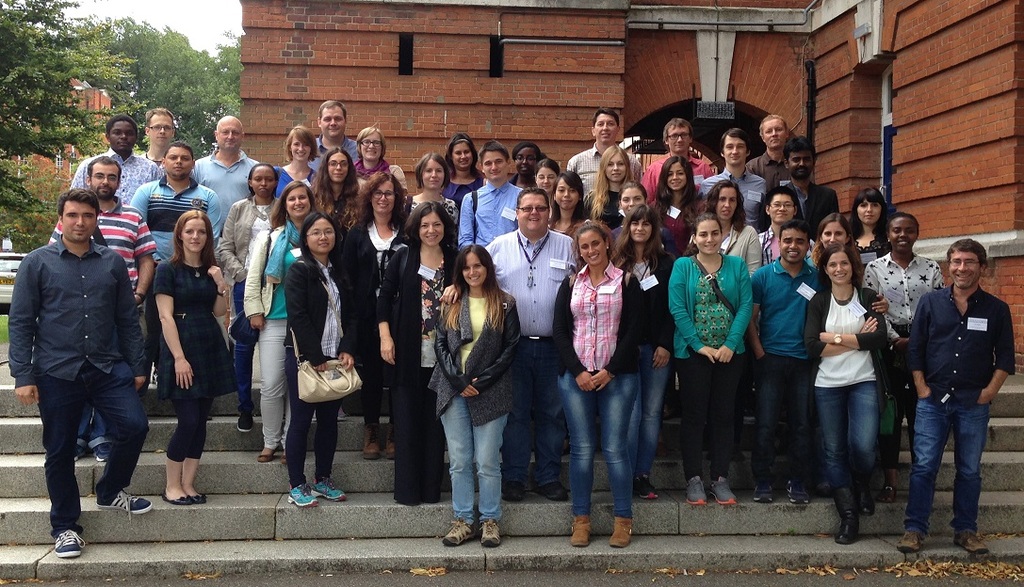
 |
| Figure. 1 Symposium Photo |
Molecularly imprinted polymers (MIPs) are synthetic macromolecular receptors formed by the copolymerisation of recognition and matrix-forming monomers in the presence of a template species. Post-polymerisation removal of the template reveals binding cavities that are complementary to the template in size, shape and functional groups, such that the template (or closely-related species) may re-occupy these cavities with high selectivity and specificity. These bespoke recognition properties, coupled with their robust nature and ease of synthesis, make MIPs attractive as selective sorbents in a diverse range of applications, such as separations, sensing, catalysis and drug discovery/delivery.
The latest incarnation of this series of free meetings took place at the end of August 2015, with the emphasis again on providing graduate students the opportunity to present their research, network with other young researchers and to hear tutorial-style plenary lectures from invited speakers on particular aspects of imprinting and related technologies. Medway School of Pharmacy welcomed 37 graduate students pursuing their imprinting research in eight different EU countries.
Over the course of the two days, there were 26 oral and 13 poster presentations, all of very high quality, spanning a wide range of imprinting topics. As befits current trends in the field, many lectures concerned the areas of peptide/protein imprinting and the incorporation of imprinted polymers with electrochemical sensors. However, there were also lectures on diverse such topics as the use of MIPs in the analysis of boar taint and the incorporation of MIPs in cosmetic products!
The plenary lectures were delivered by Prof. Goreti Sales (BIOMARK, Porto, Portugal) whose lecture Towards successful protein imprinting highlighted strategies to achieve this complicated aim, and Dr. Vladimir Gubala (Medway School of Pharmacy, UK), who posed the following, thought-provoking question: Nano-engineered material: Have we promised too much?
The high levels of participation in the Q&A section after each talk, the lively discussions at the poster sessions and during the breaks and social events again verified that the informal format of the meeting appeals to early stage researchers. The opportunity to meet and converse with the invited speakers was also particularly welcomed.
In closing, the Organising Committee, Dr Andrew J. Hall (University of Kent, UK), Dr Panagiotis Manesiotis (Queen’s University Belfast, UK) and Prof Börje Sellergren (University of Malmö, Sweden), wish to express their gratitude to the Materials Division of the RSC for the financial support which allowed this meeting to take place as a free event. We also thank all the graduate students who attended for their contribution to the success of the meeting and look forward to the next Symposium, which will be hosted by Prof. Sales in Porto in 2017.
| Posted on 12 October 2015 at 18:27:03 by Panagiotis Manesiotis |  |
